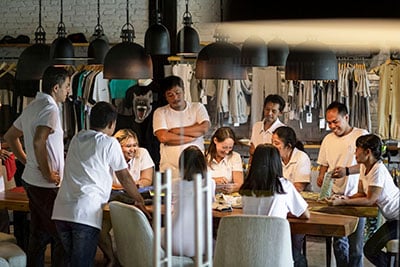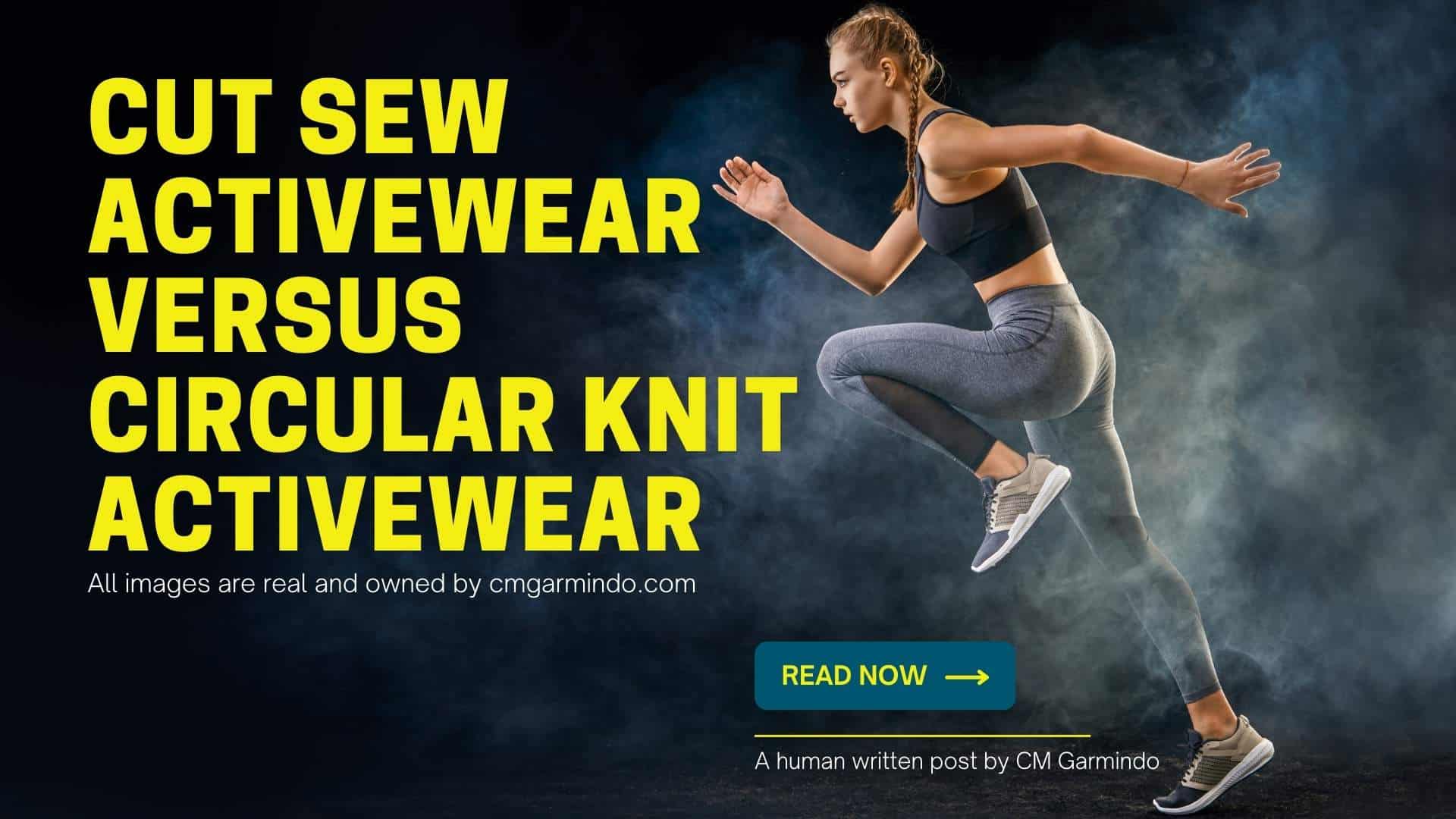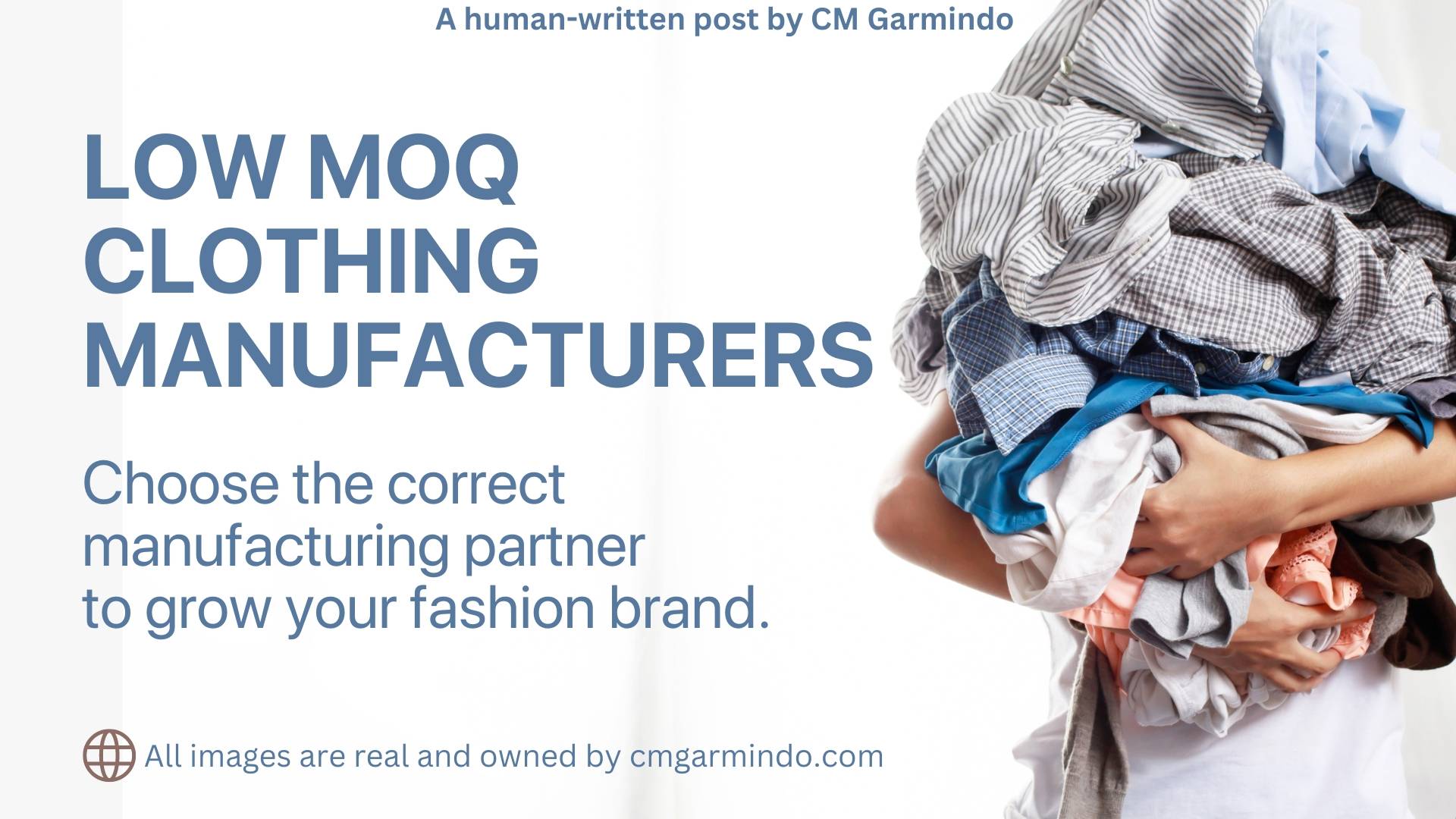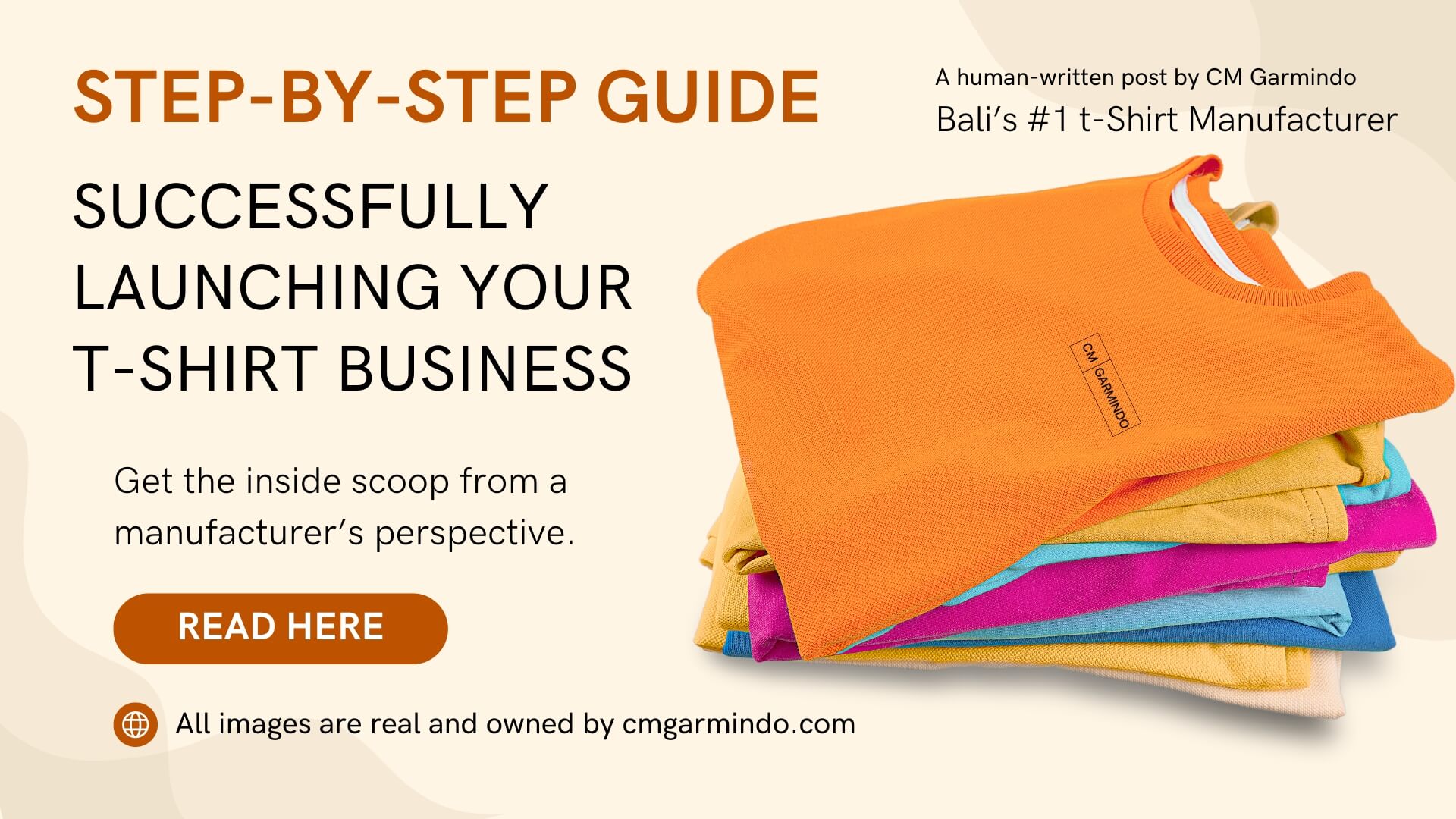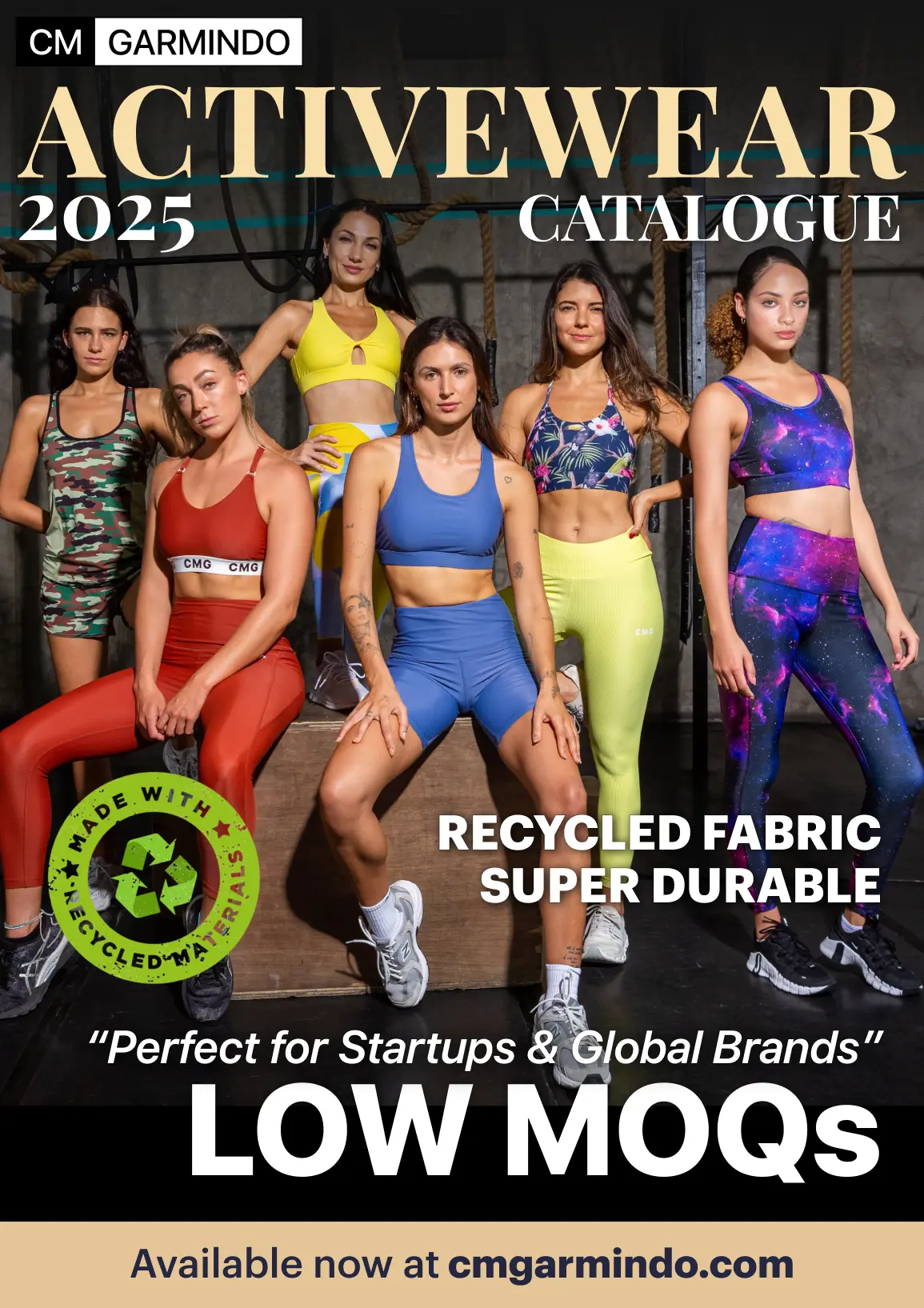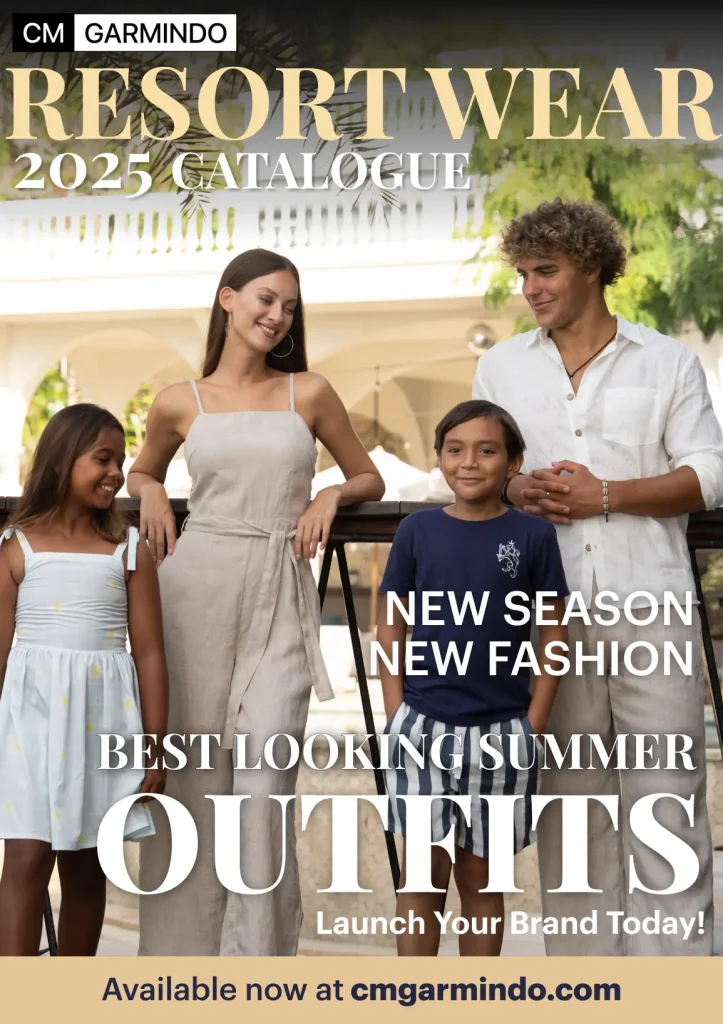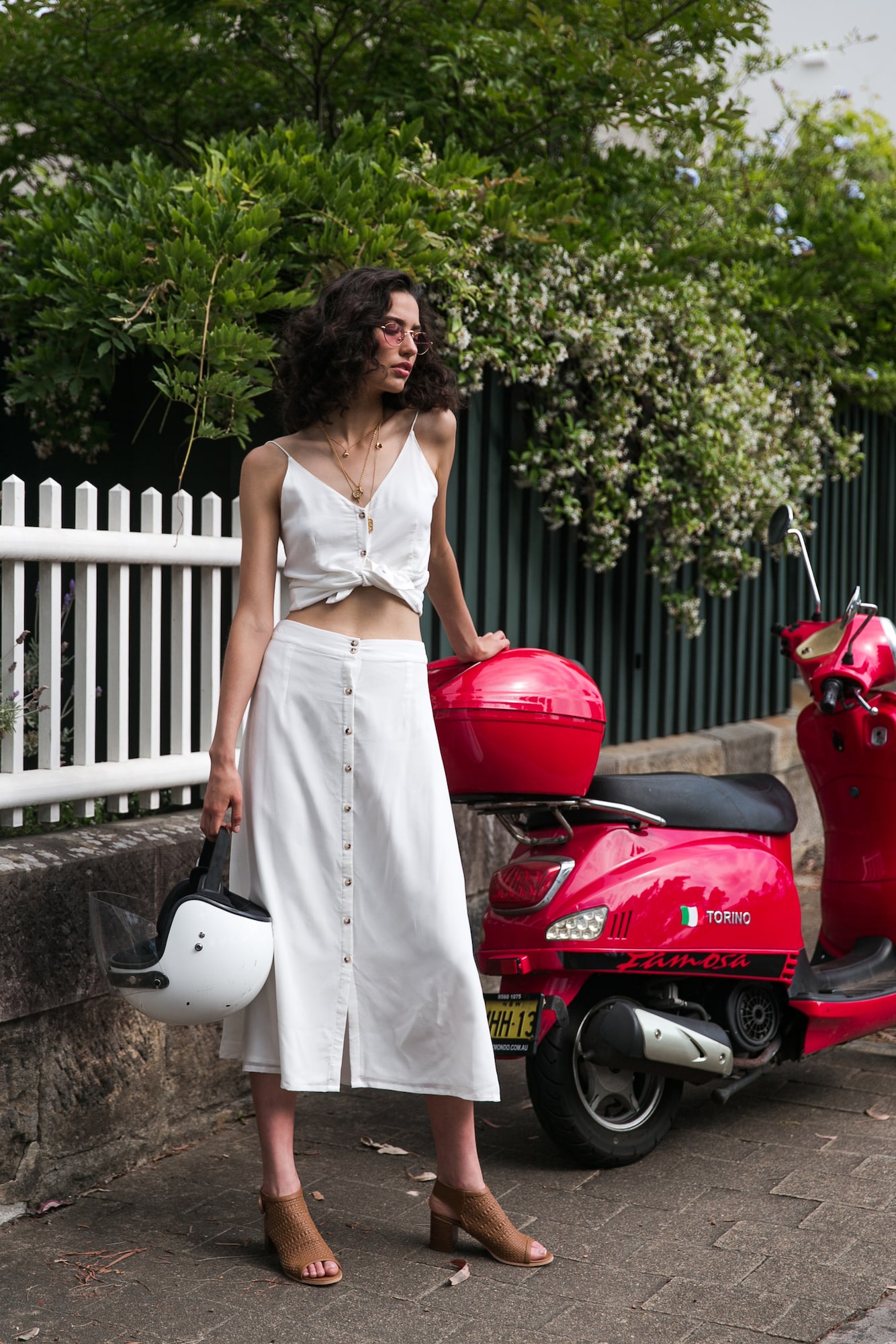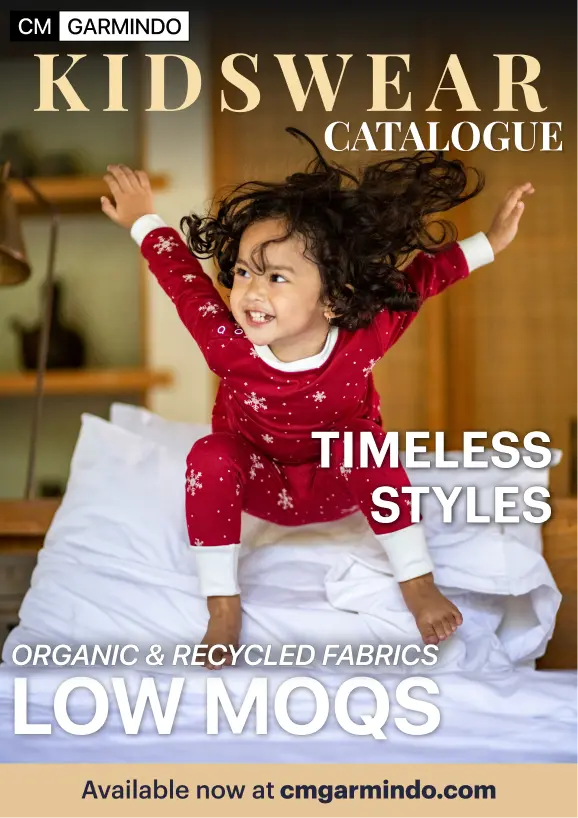Bali clothing manufacturers come in all shapes and sizes. But what you may not know is, most clothing manufacturers in Bali are “informal” businesses. There are only a few properly structured and taxed companies. Let’s explore what the garment manufacturing landscape looks like in Bali.
Bali Clothing Manufacturers: The Landscape
Informal Factories:
The majority of clothing manufacturers in Bali are Indonesian family-owned businesses. Oftentimes these are SME’s that aren’t legally registered companies and don’t pay taxes. There is no corporate structure or SOPs.
These businesses create what’s known as an “informal economy“.
Informal businesses comprise a large part of the local economy and provide employment opportunities throughout the supply chain.
Unfortunately, without a formal structure, communication and quality suffers. You run the risk of working with businesses that face no liability for lack of service delivery, and oftentimes don’t care.
Agencies As Clothing Manufacturers:
This is where things can feel a bit confusing. Why does a website say they’re a manufacturer but they charge for consultations, charge for services individually, and don’t own all the machines and facilities in the photos on their website?
Agencies can be useful. They can help you find the right Bali clothing manufacturers. Communicate on your behalf if language is a barrier. And manage production activities on your behalf. Very few agencies actually know what they’re doing.
But the drawbacks are easy to see. Ambiguous about their operations. Additional costs and commissions. Little to no control over quality. Communication is always through a 3rd party. Not an actual garment manufacturer. Mostly expat-owned and have a short lifespan.
Formal But Unethical:
This is the one that raises red flags for us. Usually, these are expat-owned factories, that have small in-house teams, and mainly employ home-based sewers for the bulk of their productions.
But why do this?
When a garment factory outsources their productions to home sewers, it means these sewers are not actually on the payroll and don’t get any benefits. They’re paid low per-piece wages which makes them work long hours for at least 6 days per week.
This funnels the majority of the company’s profits into the owner’s hands; workers see little returns.
To avoid these types of companies, look at their websites and social media accounts to see if they post real photos from the inside of their factories. If they say they have 200 employees, does the photos on their websites show a proper, safe, working environment for all 200 people? Or are they fibbing?
Formal And Ethical:
When you’re searching for clothing manufacturers, you should always include the word “ethical” in your query. But there’s really only a handful of Bali clothing manufacturers that fall into this category.
Ethical clothing manufacturers focus on treating their employees with respect, paying liveable wages, and provide a broader range of benefits or opportunities. This is considered socially responsible production.
These types of cloth manufacturers are also more likely to offer some sustainable fabrics options. And should have reasonably clear SOPs in place.
If they are in fact ethical, they should only show photos of their insides of their company and photos of the realities of working with them.
Fair Trade Bali Clothing Manufacturers:
Now we’re talking! This is the ultimate clothing manufacturer that you should search for. At this level, there’s only two or three clothing manufacturers in Bali that have truly achieved this prestigious status.
According to the WFTO, Fair Trade is defined as:
Fair Trade is a trading partnership, based on dialogue, transparency and respect, that seeks greater equity in international trade. It contributes to sustainable development by offering better trading conditions to, and securing the rights of, marginalized producers and workers – especially in the South.
Fair Trade Organisations have a clear commitment to Fair Trade as the principal core of their mission. They, backed by consumers, are engaged actively in supporting producers, awareness raising and in campaigning for changes in the rules and practice of conventional international trade.
Fair Trade Bali clothing manufacturers like CM Garmindo follow a higher path. Beyond just ethical manufacturing, we impact increasing positive change both domestically, and internationally. We have CSR programs that extend our community involvement.
You can see our Mission & Vision statements as well as how we take massive action on this page of our website.
With Fair Trade garment manufacturing, you can expect the highest level of quality fabrics, premium production quality, and a humanistic business approach (mentioned on the CM Garmindo YouTube channel).
We leave you with one quote that helps underscore CM Garmindo’s Fair Trade approach:
“A rising tide will lift all boats.”
Equity is equality.
If you’re searching for a very high quality clothing manufacturer in Bali, that’s Fair Trade, give us a call. We’d love to discuss your production needs.
